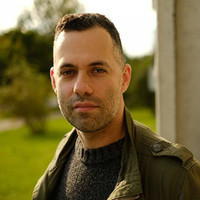Michael Idov is a screenwriter, journalist, and the former editor-in-chief of GQ Russia. His latest book is Dressed Up for a Riot.
"It just goes to show that the best thing you can possibly do as a journalist is to forget you’re a journalist, go out, have some authentic experiences, preferably fail at something really hard, and then write about that."
Thanks to MailChimp and Mubi for sponsoring this week's episode.








